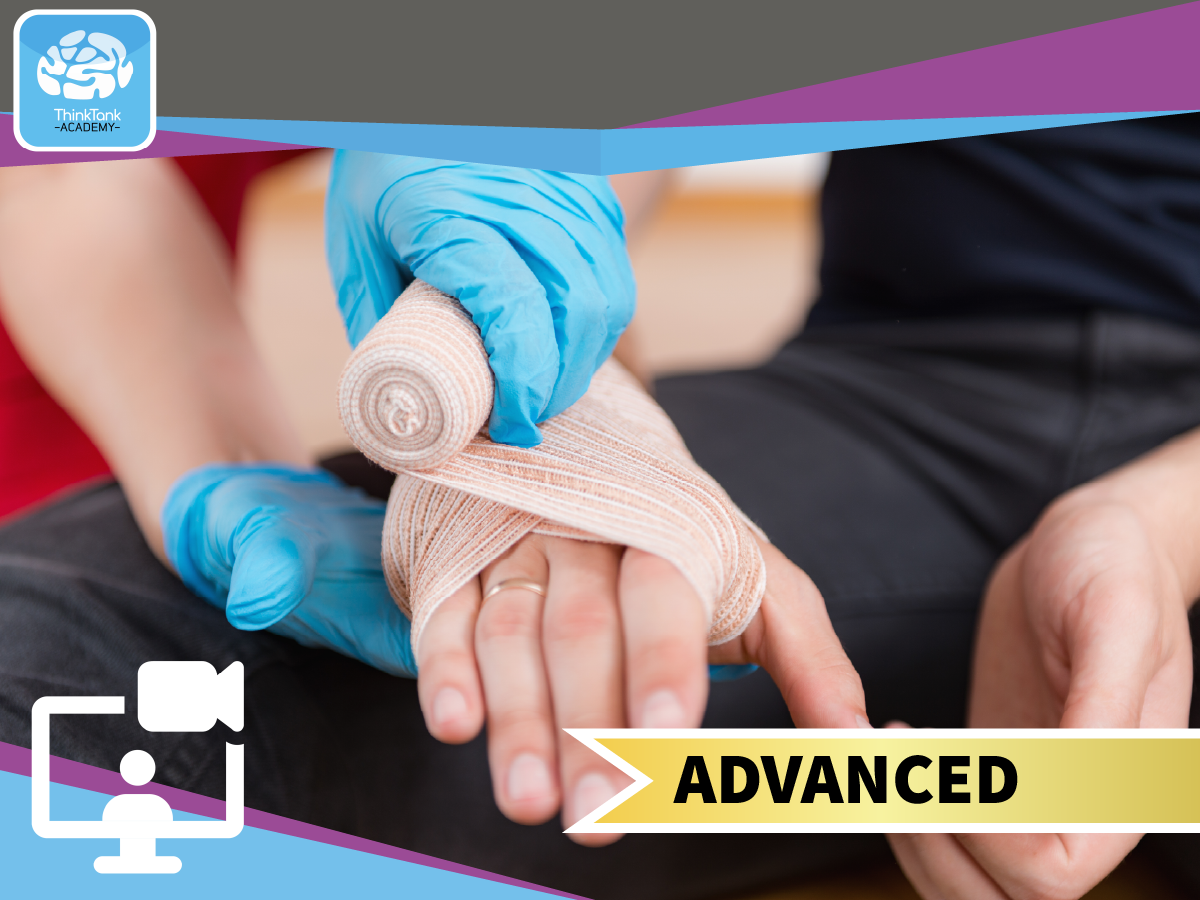
First Aid at Work - Adult and Children's Care - Advanced Level
Course Description First Aid at Work - Adult and Children's Care - Advanced Level - 2 Day Course training course is designed specifically to train people face to face, who are required to be First Aiders at Work. It includes all aspects of First Aid including CPR and the use of defibrillators. It gives an in-depth insight into various illnesses, diseases, conditions, and injuries that are commonly seen in the workplace. There is an element of both practical competency and First Aid knowledge included which gives the learners the best chance possible of helping a person who is injured, the prevention of further injuries and even saving lives. The use of equipment is involved in the course along with demonstrations of treating and bandaging injuries and wounds, stemming bleeds and how to deal with a person who is choking. This course can be delivered in face-to-face classroom environment or a virtual classroom via a webinar: on PC, laptop etc. For mobile phones it is recommended to use the app for IOS or Android devices. Aims and Objectives To provide candidates with the knowledge and expertise to qualify as a first aider within the workplace Describe your actions in an emergency Demonstrate the management of the unresponsive casualty Demonstrate adult resuscitation including use of the AED Describe how to recognise and treat bleeding and shock Explain the management of adult choking Explain the treatment of minor and major injuries Course Audience This course is designed for anyone who is required to be a First Aider in the Workplace.





First Aid at Work - Adult and Children's Care - Advanced Level
Course Description First Aid at Work - Adult and Children's Care - Advanced Level - 2 Day Course training course is designed specifically to train people face to face, who are required to be First Aiders at Work. It includes all aspects of First Aid including CPR and the use of defibrillators. It gives an in-depth insight into various illnesses, diseases, conditions, and injuries that are commonly seen in the workplace. There is an element of both practical competency and First Aid knowledge included which gives the learners the best chance possible of helping a person who is injured, the prevention of further injuries and even saving lives. The use of equipment is involved in the course along with demonstrations of treating and bandaging injuries and wounds, stemming bleeds and how to deal with a person who is choking. This course can be delivered in face-to-face classroom environment or a virtual classroom via a webinar: on PC, laptop etc. For mobile phones it is recommended to use the app for IOS or Android devices. Aims and Objectives To provide candidates with the knowledge and expertise to qualify as a first aider within the workplace Describe your actions in an emergency Demonstrate the management of the unresponsive casualty Demonstrate adult resuscitation including use of the AED Describe how to recognise and treat bleeding and shock Explain the management of adult choking Explain the treatment of minor and major injuries Course Audience This course is designed for anyone who is required to be a First Aider in the Workplace.
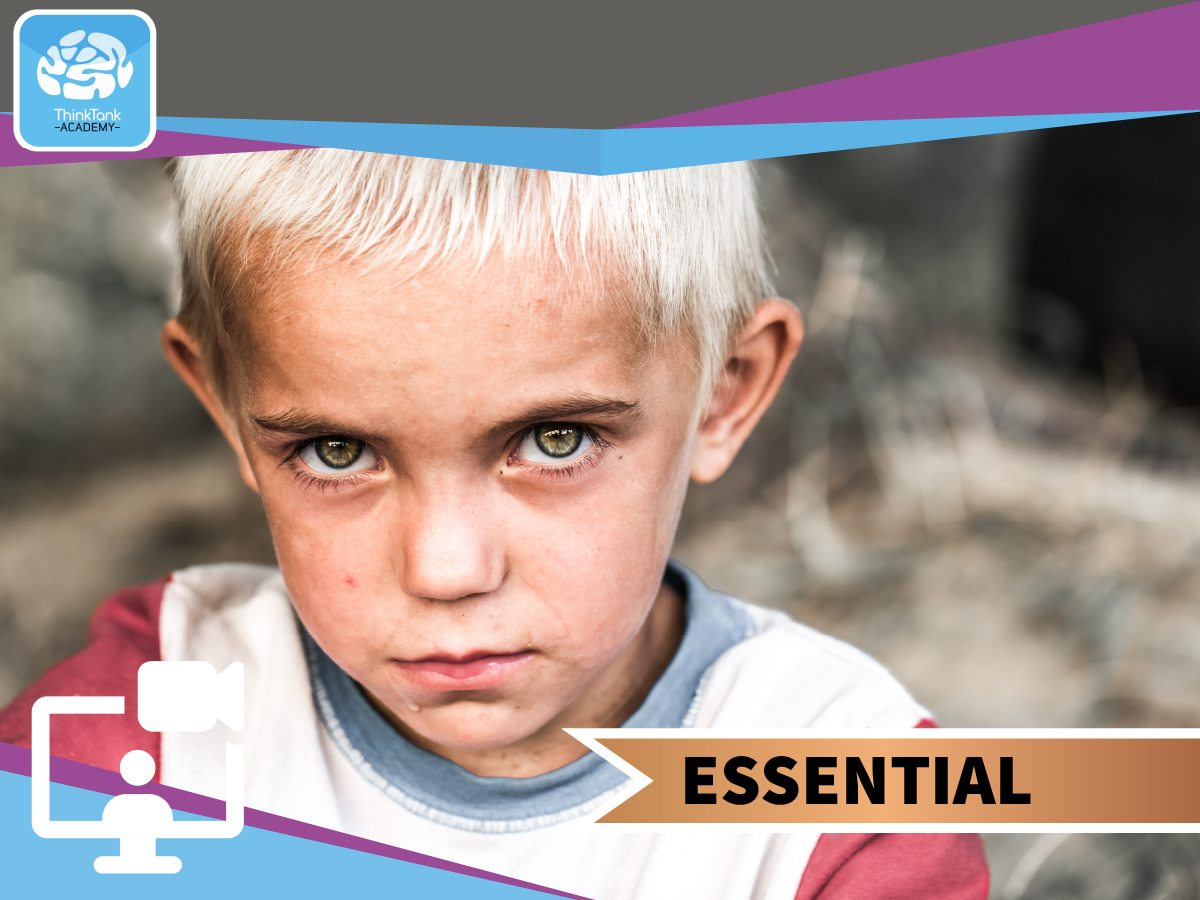


Exploitation Awareness - Children's Care - Essential Level
Course Overview Exploitation Awareness - Children's Care - Essential Level training course is designed to highlight the fact that Child Exploitation refers to a child or young person being used for someone else’s gain and that Child exploitation is a form of abuse which can involve sexual, abusive or manipulative behaviour. This course supports practitioners to recognise the indicators and respond appropriately to individuals that are being Exploited. It includes the ‘grooming process’ and how perpetrators manipulate young people into inappropriate relationships and risky behaviours It incorporates the relevant legislation around Exploitation and provides advice on how to support children and young people who have suffered this type of abuse and some excellent resources around Exploitation and who we can signpost to. This course can be delivered in face-to-face classroom environment or a virtual classroom via a webinar: on PC, laptop etc. For mobile phones it is recommended to use the app for IOS or Android devices. Aims and Objectives Give an understanding of the scale of the issue CSE and CCE Include a background of exploitation Recognise the stages of grooming Identify the signs of CSE and CCE Recognise the lessons learned from the Rotherham Raise awareness of County lines Push/ Pull Factors Protocols Resources & Links Course Audience All practitioners that engage with Children and Young People in the workplace (sports, education, health and social care, criminal justice, hospitality, retail, Guides/ Scouts, Volunteers etc).
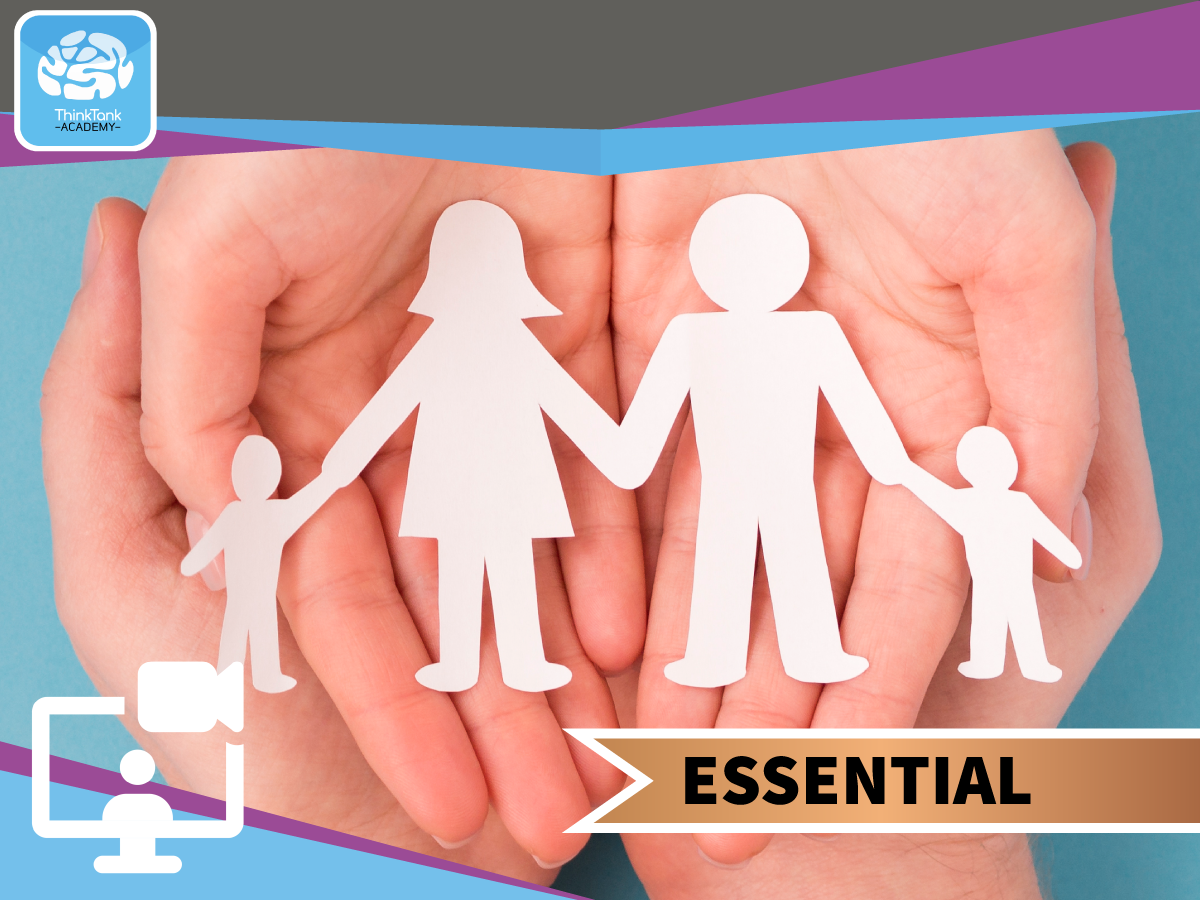



Safeguarding Children - Children's Care - Essential Level
Course Overview This course provides progression from the Safeguarding Children Foundation Level Online course. This is a training session for people working with children and young people. Learners will be encouraged to think about their responsibilities in safeguarding, the process to follow when allegations and disclosures are made and how to respond to poor practice. The course features a range of group work, activities and discussions to enhance learner skill development. This training session can be accessed via a link and is accessible from a range of devices including IOS and Android platforms. This course offers a blended learning approach including a short scenario, a workbook, infographics and a classroom style training session. Aims & Objectives Understanding what Safeguarding means in relation to Children Identify why children are vulnerable and what the signs and indicators are Understand how to respond and record and what needs to be reported Identify what poor practice and what unsafe practice looks like Understand how to whistle blow and what this means Introduce the Complaints Procedure and policies in relation to this Course Audience Health Care Workers, Social Care Workers, Support Centre Practitioners, Youth Workers, Children’s Support Worker, Nursing Staff, Residential Care Staff, Teachers, Psychologists and Assistants, Nursery Workers
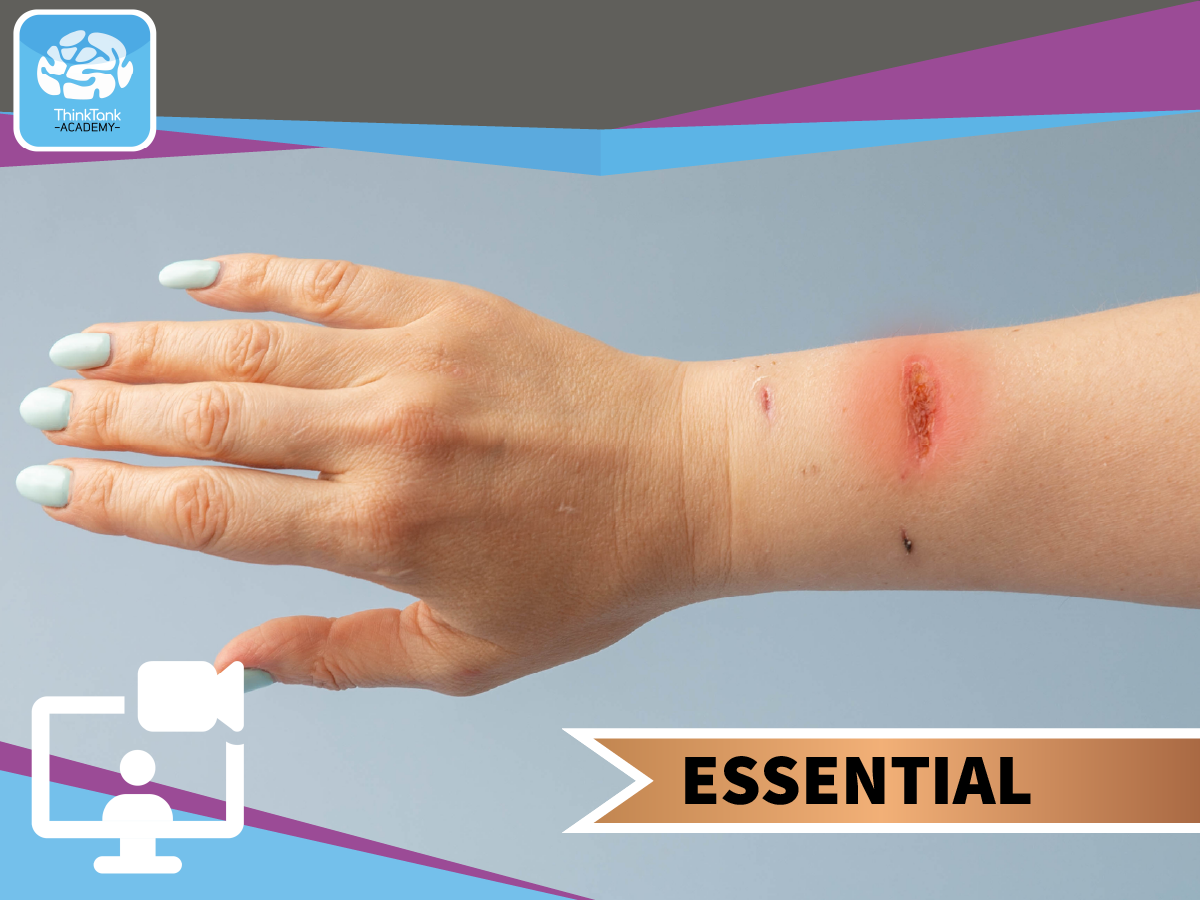




Self-Harm Awareness - Children's Care - Essential Level
Course Overview Self-Harm Awareness - Children's Care - Essential Level training course outlines the basic understanding of self-harm and suicide. It explores ways to prevent and reduce harm caused by children and young people within the work environment. Included are different strategies and techniques to be referred and incorporated into practice. Learners will be able to identify common signs and symptoms of an individual who self-harms as well as be able to relate to the likelihood of individuals to attempt suicide. It has been designed to develop tools and techniques to be used to respond to self-harm and suicide ideation. This course can be delivered in face-to-face classroom environment or a virtual classroom via a webinar: on PC, laptop etc. For mobile phones it is recommended to use the app for IOS or Android devices. Aims & Objectives Give an understanding of self-harm and suicide Understand the associated risk factors Explore harm minimisation and prevention Increase our confidence Provide tools and techniques to respond to suicide ideation and self-harm Resources & Links Course Audience This course is designed for people who work in the social care sector with children and young people who may be at risk of self-harm or suicide.





Self-Harm Awareness - Children's Care - Essential Level
Course Overview Self-Harm Awareness - Children's Care - Essential Level training course outlines the basic understanding of self-harm and suicide. It explores ways to prevent and reduce harm caused by children and young people within the work environment. Included are different strategies and techniques to be referred and incorporated into practice. Learners will be able to identify common signs and symptoms of an individual who self-harms as well as be able to relate to the likelihood of individuals to attempt suicide. It has been designed to develop tools and techniques to be used to respond to self-harm and suicide ideation. This course can be delivered in face-to-face classroom environment or a virtual classroom via a webinar: on PC, laptop etc. For mobile phones it is recommended to use the app for IOS or Android devices. Aims & Objectives Give an understanding of self-harm and suicide Understand the associated risk factors Explore harm minimisation and prevention Increase our confidence Provide tools and techniques to respond to suicide ideation and self-harm Resources & Links Course Audience This course is designed for people who work in the social care sector with children and young people who may be at risk of self-harm or suicide.
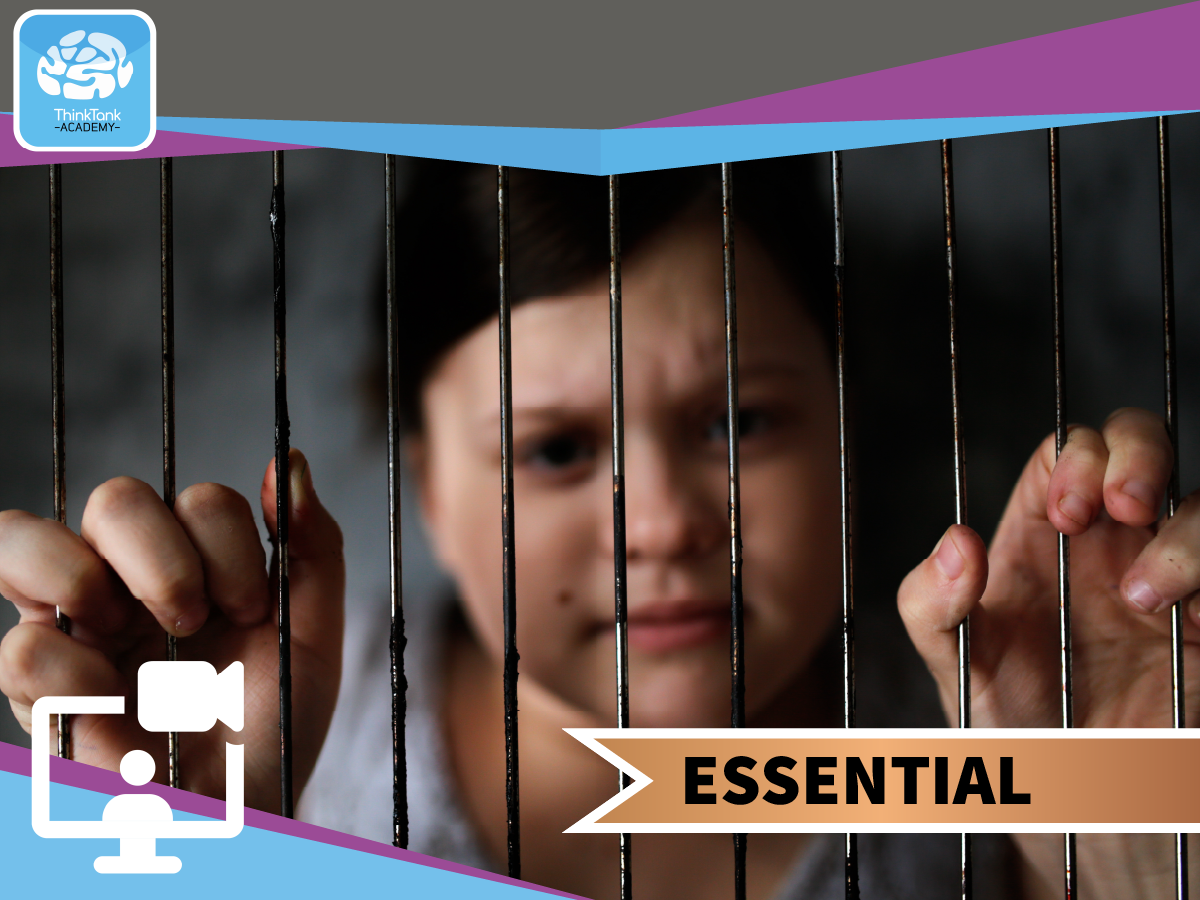


Trauma - Children's Care - Essential Level
Course Overview Trauma - Children's Care - Essential Level training course is designed to aid understanding of Trauma and how it can affect the lives of people long after the event that caused it. An understanding of what causes it will be provided along with techniques and strategies to reduce the negative impact it leaves on people. The activities encourage reflection that can be implemented into practice. Then, the quiz is completed at the end of the course to consolidate learning. A session re-cap is held where the learner can ask any further questions and key factors are stated by the Tutor. Learners are given the opportunity to reflect on what they have gained from the programme. The course features a range of group work, activities and discussions to enhance learner skill development. This training session can be accessed via a link and is accessible from a range of devices including IOS and Android platforms. Aims & Objectives Define Trauma and how the body responds to it Give examples of traumatic experiences and reactions to Trauma Discuss the effects of Trauma on Children and Young People Highlight trauma triggers and responses Give an overview of trauma informed care Discuss that challenges that staff can face and give advice on how to help Children and Young People and the importance of self-care Course Audience Health Care Workers, Social Care Workers, Nursing staff, Day Care/Centre workers, Home Care Staff, Agency staff.



Attachment - Children's Care - Essential Level
Course Overview Attachment - Children's Care - Essential Level training course aims to provide learners with an understanding and awareness of Attachment and encourages each learner to reflect on their own personal attachments and their practice in relation to working with individuals with Attachment Disorders. The course explores the background of Attachment and how early Theorists developed the concepts that underpin Attachment Theory that we still use today. The course features a range of group work, activities and discussions to enhance learner skill development. This course can be delivered in face-to-face classroom environment or a virtual classroom via a webinar: on PC, laptop etc. For mobile phones it is recommended to use the app for IOS or Android devices. Aims & Objectives Define Attachment Disorder Be aware of the underpinning theory of Attachment Identify barriers for Children with insecure attachments Recognise and manage behaviours linked to negative attachments Suggest Strategies to support children with poor Attachments Course Audience Health Care Workers, Social Care Workers, Children’s Centre Practitioners, Education Support Staff and Youth Workers
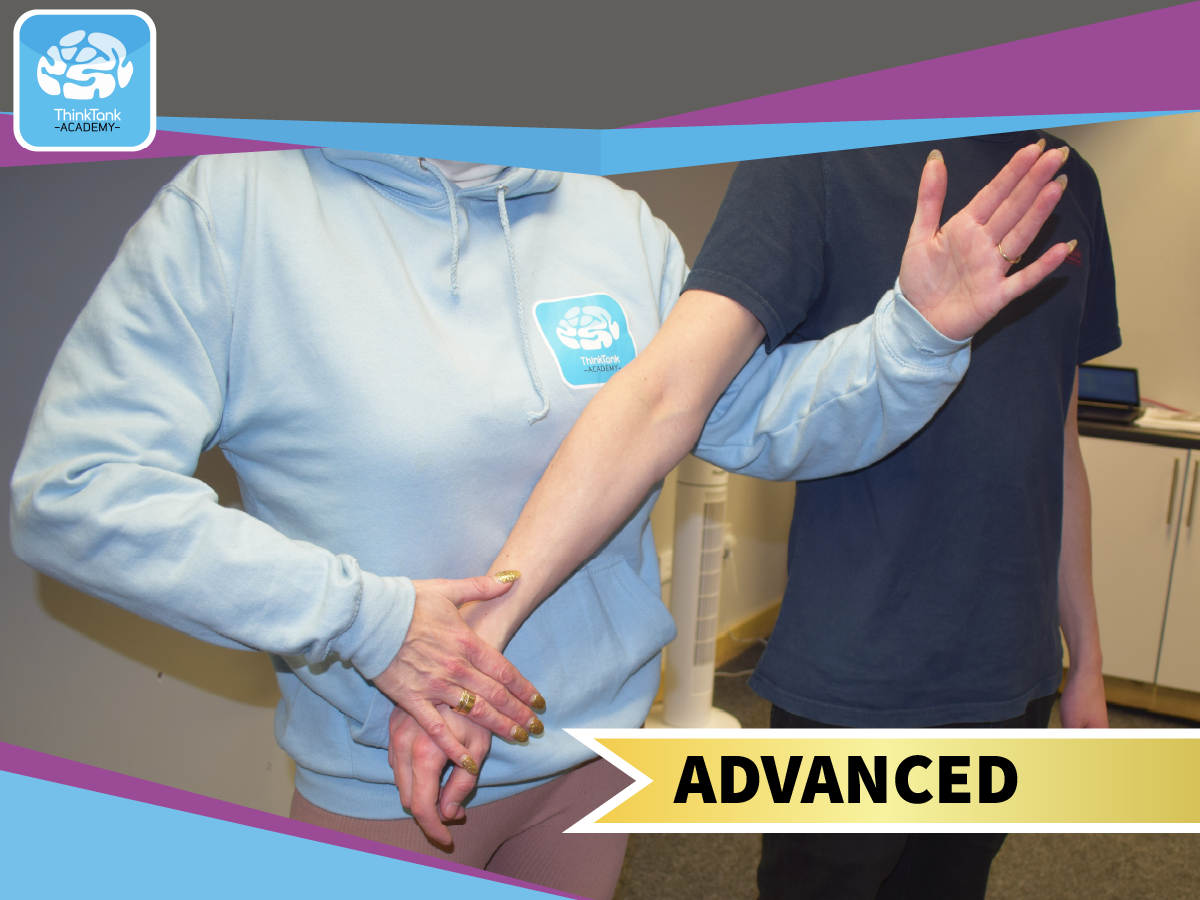



T.A.N.K. Positive Behaviour Support and Physical Intervention - Children's Care (Refresher) - Advanced Level
forthcoming





Self-Harm Awareness - Children's Care - Essential Level
Course Overview Self-Harm Awareness - Children's Care - Essential Level training course outlines the basic understanding of self-harm and suicide. It explores ways to prevent and reduce harm caused by children and young people within the work environment. Included are different strategies and techniques to be referred and incorporated into practice. Learners will be able to identify common signs and symptoms of an individual who self-harms as well as be able to relate to the likelihood of individuals to attempt suicide. It has been designed to develop tools and techniques to be used to respond to self-harm and suicide ideation. This course can be delivered in face-to-face classroom environment or a virtual classroom via a webinar: on PC, laptop etc. For mobile phones it is recommended to use the app for IOS or Android devices. Aims & Objectives Give an understanding of self-harm and suicide Understand the associated risk factors Explore harm minimisation and prevention Increase our confidence Provide tools and techniques to respond to suicide ideation and self-harm Resources & Links Course Audience This course is designed for people who work in the social care sector with children and young people who may be at risk of self-harm or suicide.




Safeguarding Children - Children's Care - Essential Level
Course Overview This course provides progression from the Safeguarding Children Foundation Level Online course. This is a training session for people working with children and young people. Learners will be encouraged to think about their responsibilities in safeguarding, the process to follow when allegations and disclosures are made and how to respond to poor practice. The course features a range of group work, activities and discussions to enhance learner skill development. This training session can be accessed via a link and is accessible from a range of devices including IOS and Android platforms. This course offers a blended learning approach including a short scenario, a workbook, infographics and a classroom style training session. Aims & Objectives Understanding what Safeguarding means in relation to Children Identify why children are vulnerable and what the signs and indicators are Understand how to respond and record and what needs to be reported Identify what poor practice and what unsafe practice looks like Understand how to whistle blow and what this means Introduce the Complaints Procedure and policies in relation to this Course Audience Health Care Workers, Social Care Workers, Support Centre Practitioners, Youth Workers, Children’s Support Worker, Nursing Staff, Residential Care Staff, Teachers, Psychologists and Assistants, Nursery Workers




T.A.N.K. Positive Behaviour Support and Physical Intervention - Children's Care - Advanced Level
T.A.N.K. Positive Behaviour Support and Physical Intervention - Children's Care - Advanced Level THINK – ASSESS – NURTURE – KEEP CONTROL Course Overview T.A.N.K. is two-day, classroom-based training programme, designed specifically to help people working with children and vulnerable adults, who can often display challenging behaviour whilst in crisis. T.A.N.K. focuses on developing an understanding of how this behaviour can present itself in the care environment. It provides both theoretical and practical skills to help delegates respond positively employing strategies and interventions that can safely de-escalate situation, minimising the risk to themselves and young person. Delegates are supported to analyse different behaviours, dynamically risk manage situations, considering strategies and interventions to safely manage behaviour. Delegates will analyse and reflect on relationship between trauma attachment, mood, and behaviour leading to long-term improvement. The course features group work, practical activities, and discussion to enhance skills development. Our highly experienced Trainers are passionately dedicated to reducing the use of physical restraints, and although the use of restraints and physical intervention are included, this is as a last resort, only using these when all other strategies have proved unsuccessful. Aims and Objectives Interventions which impact positively on the delegate and the people they support Demonstrate how to positively reinforce good behaviour Reflect on positive and negative consequences of behaviour Provide a toolkit that delegates can use to provide safe and meaningful intervention Introduce the concept of social reinforcement and how this can work in care and support environments Course Audience Residential Care Workers, Health Care Workers, Social Care Workers, Children’s Centre Practitioners, Youth Workers, Teachers and Early Years Practitioners



Exploitation Awareness - Children's Care - Essential Level
Course Overview Exploitation Awareness - Children's Care - Essential Level training course is designed to highlight the fact that Child Exploitation refers to a child or young person being used for someone else’s gain and that Child exploitation is a form of abuse which can involve sexual, abusive or manipulative behaviour. This course supports practitioners to recognise the indicators and respond appropriately to individuals that are being Exploited. It includes the ‘grooming process’ and how perpetrators manipulate young people into inappropriate relationships and risky behaviours It incorporates the relevant legislation around Exploitation and provides advice on how to support children and young people who have suffered this type of abuse and some excellent resources around Exploitation and who we can signpost to. This course can be delivered in face-to-face classroom environment or a virtual classroom via a webinar: on PC, laptop etc. For mobile phones it is recommended to use the app for IOS or Android devices. Aims and Objectives Give an understanding of the scale of the issue CSE and CCE Include a background of exploitation Recognise the stages of grooming Identify the signs of CSE and CCE Recognise the lessons learned from the Rotherham Raise awareness of County lines Push/ Pull Factors Protocols Resources & Links Course Audience All practitioners that engage with Children and Young People in the workplace (sports, education, health and social care, criminal justice, hospitality, retail, Guides/ Scouts, Volunteers etc).



Trauma - Children's Care - Essential Level
Course Overview Trauma - Children's Care - Essential Level training course is designed to aid understanding of Trauma and how it can affect the lives of people long after the event that caused it. An understanding of what causes it will be provided along with techniques and strategies to reduce the negative impact it leaves on people. The activities encourage reflection that can be implemented into practice. Then, the quiz is completed at the end of the course to consolidate learning. A session re-cap is held where the learner can ask any further questions and key factors are stated by the Tutor. Learners are given the opportunity to reflect on what they have gained from the programme. The course features a range of group work, activities and discussions to enhance learner skill development. This training session can be accessed via a link and is accessible from a range of devices including IOS and Android platforms. Aims & Objectives Define Trauma and how the body responds to it Give examples of traumatic experiences and reactions to Trauma Discuss the effects of Trauma on Children and Young People Highlight trauma triggers and responses Give an overview of trauma informed care Discuss that challenges that staff can face and give advice on how to help Children and Young People and the importance of self-care Course Audience Health Care Workers, Social Care Workers, Nursing staff, Day Care/Centre workers, Home Care Staff, Agency staff.



Attachment - Children's Care - Essential Level
Course Overview Attachment - Children's Care - Essential Level training course aims to provide learners with an understanding and awareness of Attachment and encourages each learner to reflect on their own personal attachments and their practice in relation to working with individuals with Attachment Disorders. The course explores the background of Attachment and how early Theorists developed the concepts that underpin Attachment Theory that we still use today. The course features a range of group work, activities and discussions to enhance learner skill development. This course can be delivered in face-to-face classroom environment or a virtual classroom via a webinar: on PC, laptop etc. For mobile phones it is recommended to use the app for IOS or Android devices. Aims & Objectives Define Attachment Disorder Be aware of the underpinning theory of Attachment Identify barriers for Children with insecure attachments Recognise and manage behaviours linked to negative attachments Suggest Strategies to support children with poor Attachments Course Audience Health Care Workers, Social Care Workers, Children’s Centre Practitioners, Education Support Staff and Youth Workers


Recording and Reporting - Children's Care - Essential Level
Course Overview This course is designed to improve recording and reporting practices in children's health and social care sector. All major high profile serious case reviews have found that recording mistakes were present. The course identifies correct practice and processes for the handling, storing and processing of data including the GDPR legislation and what must be recorded and how by distinguishing the differences between fact, opinion and judgement for professional documentation. It also provides guidance for effective and sufficient reporting of incidents within a care setting. The positive aspects of recording such as Life story Work which is imperative for identity purposes of the Children and Young People that we work with are included. This course can be delivered in face-to-face classroom environment or a virtual classroom via a webinar: on PC, laptop etc. For mobile phones it is recommended to use the app for IOS or Android devices. Aims & Objectives Describe why reports have to be written Explain the meaning of ‘ethical writing’ Identify what to include in reports Recognise the difference between fact, opinion, judgement and hearsay Display documentation Course Audience This course is designed for Practitioners working with Families or Children and Young People.





First Aid at Work - Adult and Children's Care - Advanced Level
Course Description First Aid at Work - Adult and Children's Care - Advanced Level - 2 Day Course training course is designed specifically to train people face to face, who are required to be First Aiders at Work. It includes all aspects of First Aid including CPR and the use of defibrillators. It gives an in-depth insight into various illnesses, diseases, conditions, and injuries that are commonly seen in the workplace. There is an element of both practical competency and First Aid knowledge included which gives the learners the best chance possible of helping a person who is injured, the prevention of further injuries and even saving lives. The use of equipment is involved in the course along with demonstrations of treating and bandaging injuries and wounds, stemming bleeds and how to deal with a person who is choking. This course can be delivered in face-to-face classroom environment or a virtual classroom via a webinar: on PC, laptop etc. For mobile phones it is recommended to use the app for IOS or Android devices. Aims and Objectives To provide candidates with the knowledge and expertise to qualify as a first aider within the workplace Describe your actions in an emergency Demonstrate the management of the unresponsive casualty Demonstrate adult resuscitation including use of the AED Describe how to recognise and treat bleeding and shock Explain the management of adult choking Explain the treatment of minor and major injuries Course Audience This course is designed for anyone who is required to be a First Aider in the Workplace.




T.A.N.K. Positive Behaviour Support and Physical Intervention - Children's Care (Refresher) - Advanced Level
forthcoming




T.A.N.K. Positive Behaviour Support and Physical Intervention - Children's Care - Advanced Level
T.A.N.K. Positive Behaviour Support and Physical Intervention - Children's Care - Advanced Level THINK – ASSESS – NURTURE – KEEP CONTROL Course Overview T.A.N.K. is two-day, classroom-based training programme, designed specifically to help people working with children and vulnerable adults, who can often display challenging behaviour whilst in crisis. T.A.N.K. focuses on developing an understanding of how this behaviour can present itself in the care environment. It provides both theoretical and practical skills to help delegates respond positively employing strategies and interventions that can safely de-escalate situation, minimising the risk to themselves and young person. Delegates are supported to analyse different behaviours, dynamically risk manage situations, considering strategies and interventions to safely manage behaviour. Delegates will analyse and reflect on relationship between trauma attachment, mood, and behaviour leading to long-term improvement. The course features group work, practical activities, and discussion to enhance skills development. Our highly experienced Trainers are passionately dedicated to reducing the use of physical restraints, and although the use of restraints and physical intervention are included, this is as a last resort, only using these when all other strategies have proved unsuccessful. Aims and Objectives Interventions which impact positively on the delegate and the people they support Demonstrate how to positively reinforce good behaviour Reflect on positive and negative consequences of behaviour Provide a toolkit that delegates can use to provide safe and meaningful intervention Introduce the concept of social reinforcement and how this can work in care and support environments Course Audience Residential Care Workers, Health Care Workers, Social Care Workers, Children’s Centre Practitioners, Youth Workers, Teachers and Early Years Practitioners


Harmful Sexualised Behaviour - Children's Care - Intermediate Level
Course Overview This is a training session for people working with children and provides progression from our Harmful Sexual Behaviour Foundation Level Online course. Learners will be supported to understand the importance of their role in preventing and proactively managing harmful sexual behaviour including introduction of third sector partners to support with management of this including Brook and Continuum of Sexual Behaviour. Learners will understand and define the signs and symptoms of this and also the procedures to follow when there is an incident. The course features a range of group work, activities including role play and discussions to enhance learner skill development. This course offers a blended learning approach including a short scenario, a workbook, infographics and a classroom style training session. This course can be delivered in face-to-face classroom environment or a virtual classroom via a webinar: on PC, laptop etc. For mobile phones it is recommended to use the app for IOS or Android devices. Aims & Objectives Explain the difference between, normal, problematic and harmful sexual behaviour Outline the causes and prevalence of the issue Provide awareness of some main assessment approaches Provide awareness of different interventions Discuss tools and skills for practice Course Audience Health Care Workers, Social Care Workers, Support Centre Practitioners, Youth Workers, Support Worker, Nursing Staff, Children’s Residential Care Workers, Education workers.





First Aid at Work - Adult and Children's Care - Advanced Level
Course Description First Aid at Work - Adult and Children's Care - Advanced Level - 2 Day Course training course is designed specifically to train people face to face, who are required to be First Aiders at Work. It includes all aspects of First Aid including CPR and the use of defibrillators. It gives an in-depth insight into various illnesses, diseases, conditions, and injuries that are commonly seen in the workplace. There is an element of both practical competency and First Aid knowledge included which gives the learners the best chance possible of helping a person who is injured, the prevention of further injuries and even saving lives. The use of equipment is involved in the course along with demonstrations of treating and bandaging injuries and wounds, stemming bleeds and how to deal with a person who is choking. This course can be delivered in face-to-face classroom environment or a virtual classroom via a webinar: on PC, laptop etc. For mobile phones it is recommended to use the app for IOS or Android devices. Aims and Objectives To provide candidates with the knowledge and expertise to qualify as a first aider within the workplace Describe your actions in an emergency Demonstrate the management of the unresponsive casualty Demonstrate adult resuscitation including use of the AED Describe how to recognise and treat bleeding and shock Explain the management of adult choking Explain the treatment of minor and major injuries Course Audience This course is designed for anyone who is required to be a First Aider in the Workplace.




T.A.N.K. Positive Behaviour Support and Physical Intervention - Children's Care (Refresher) - Advanced Level
forthcoming




T.A.N.K. Positive Behaviour Support and Physical Intervention - Children's Care - Advanced Level
T.A.N.K. Positive Behaviour Support and Physical Intervention - Children's Care - Advanced Level THINK – ASSESS – NURTURE – KEEP CONTROL Course Overview T.A.N.K. is two-day, classroom-based training programme, designed specifically to help people working with children and vulnerable adults, who can often display challenging behaviour whilst in crisis. T.A.N.K. focuses on developing an understanding of how this behaviour can present itself in the care environment. It provides both theoretical and practical skills to help delegates respond positively employing strategies and interventions that can safely de-escalate situation, minimising the risk to themselves and young person. Delegates are supported to analyse different behaviours, dynamically risk manage situations, considering strategies and interventions to safely manage behaviour. Delegates will analyse and reflect on relationship between trauma attachment, mood, and behaviour leading to long-term improvement. The course features group work, practical activities, and discussion to enhance skills development. Our highly experienced Trainers are passionately dedicated to reducing the use of physical restraints, and although the use of restraints and physical intervention are included, this is as a last resort, only using these when all other strategies have proved unsuccessful. Aims and Objectives Interventions which impact positively on the delegate and the people they support Demonstrate how to positively reinforce good behaviour Reflect on positive and negative consequences of behaviour Provide a toolkit that delegates can use to provide safe and meaningful intervention Introduce the concept of social reinforcement and how this can work in care and support environments Course Audience Residential Care Workers, Health Care Workers, Social Care Workers, Children’s Centre Practitioners, Youth Workers, Teachers and Early Years Practitioners





Self-Harm Awareness - Children's Care - Essential Level
Course Overview Self-Harm Awareness - Children's Care - Essential Level training course outlines the basic understanding of self-harm and suicide. It explores ways to prevent and reduce harm caused by children and young people within the work environment. Included are different strategies and techniques to be referred and incorporated into practice. Learners will be able to identify common signs and symptoms of an individual who self-harms as well as be able to relate to the likelihood of individuals to attempt suicide. It has been designed to develop tools and techniques to be used to respond to self-harm and suicide ideation. This course can be delivered in face-to-face classroom environment or a virtual classroom via a webinar: on PC, laptop etc. For mobile phones it is recommended to use the app for IOS or Android devices. Aims & Objectives Give an understanding of self-harm and suicide Understand the associated risk factors Explore harm minimisation and prevention Increase our confidence Provide tools and techniques to respond to suicide ideation and self-harm Resources & Links Course Audience This course is designed for people who work in the social care sector with children and young people who may be at risk of self-harm or suicide.




Safeguarding Children - Children's Care - Essential Level
Course Overview This course provides progression from the Safeguarding Children Foundation Level Online course. This is a training session for people working with children and young people. Learners will be encouraged to think about their responsibilities in safeguarding, the process to follow when allegations and disclosures are made and how to respond to poor practice. The course features a range of group work, activities and discussions to enhance learner skill development. This training session can be accessed via a link and is accessible from a range of devices including IOS and Android platforms. This course offers a blended learning approach including a short scenario, a workbook, infographics and a classroom style training session. Aims & Objectives Understanding what Safeguarding means in relation to Children Identify why children are vulnerable and what the signs and indicators are Understand how to respond and record and what needs to be reported Identify what poor practice and what unsafe practice looks like Understand how to whistle blow and what this means Introduce the Complaints Procedure and policies in relation to this Course Audience Health Care Workers, Social Care Workers, Support Centre Practitioners, Youth Workers, Children’s Support Worker, Nursing Staff, Residential Care Staff, Teachers, Psychologists and Assistants, Nursery Workers